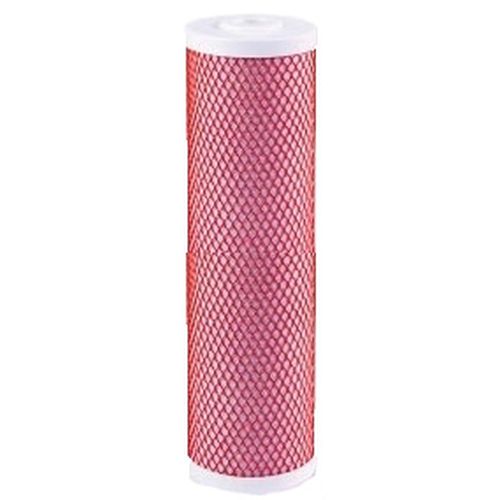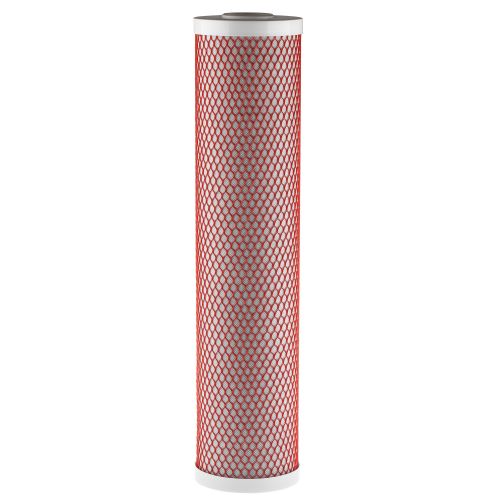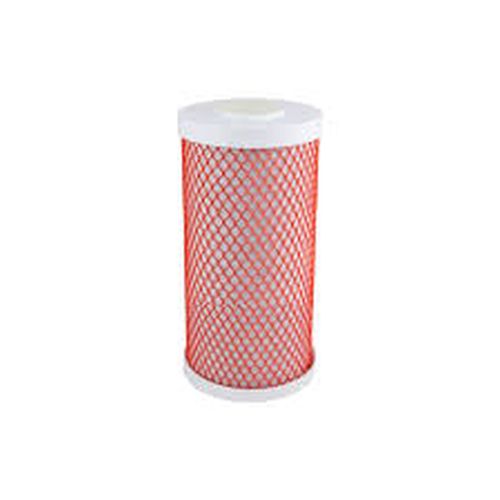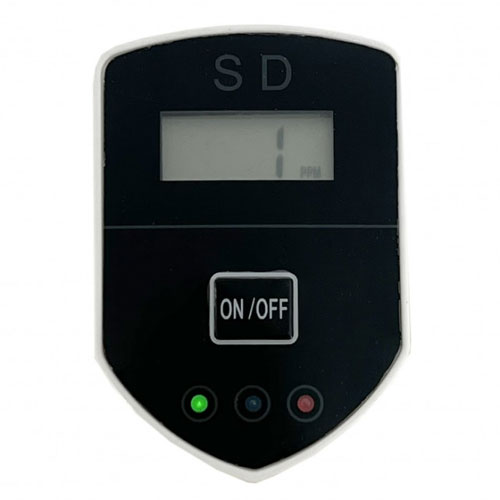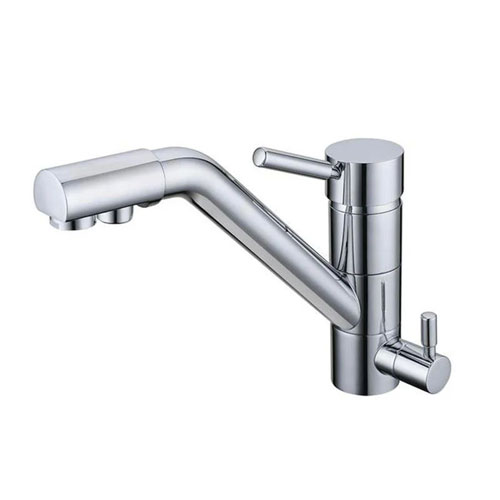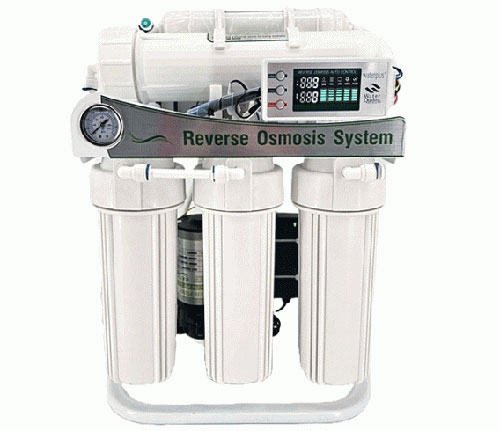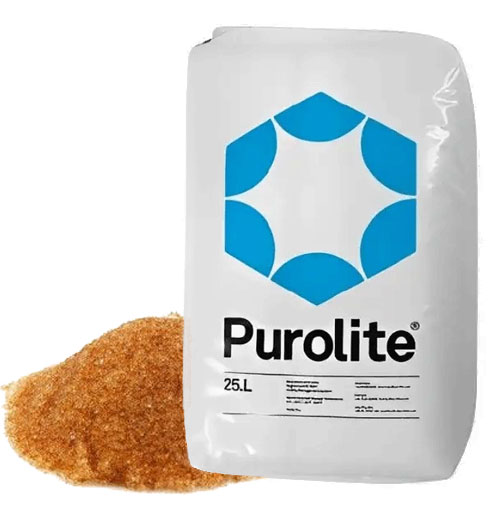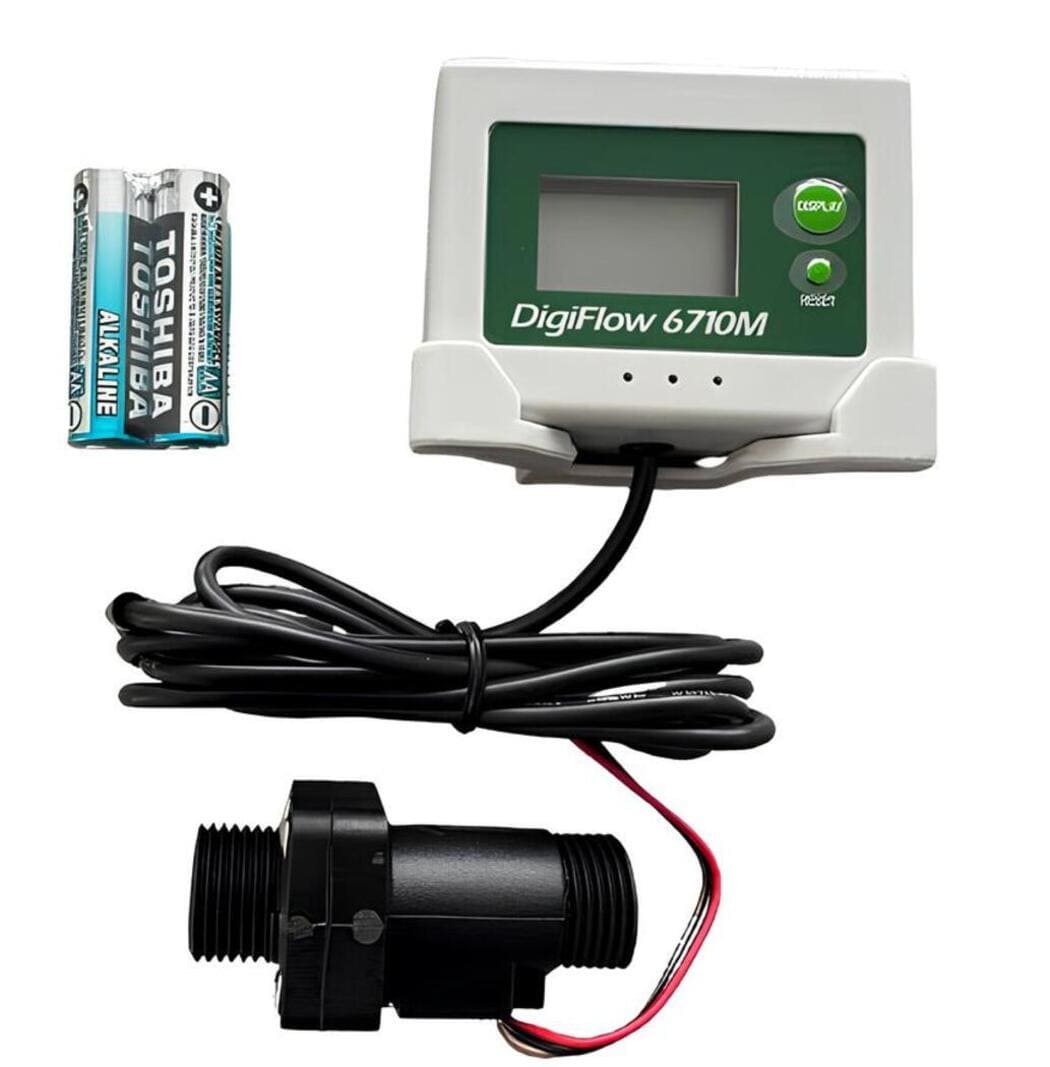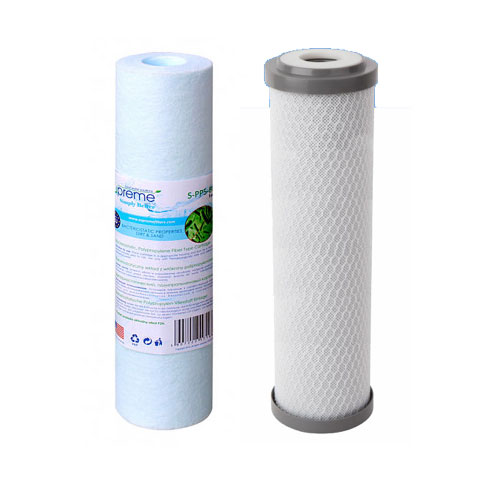
Water Filtration Guide

Home System POE (Point of Entry)
Home (POE) point of entry systems are mainly used to remove Chlorine, VOC's, heavy metals and to improve taste. These systems are called "CTO" whole house filtration (Chlorine, taste & odour). Typically through a 2 or 3 stage large 4.5" dia filters. This is due to the speed of which your home "calls" the water which can be upto 20-30lpm depending on which outlets are calling the feed water.These systems are generally used for washing, cooking and drinking. More specific filters to remove nitrate, flouride, hormones etc can be added to the stages of the systems
Required Processes
Partical Removal - Absorption of sediment, dirt, sand and scale flakes to prevent filtration systems from blockage and microorganism growth.
Chlorine and Organics Removal - Carbon cartridges are a long established choice for the reduction and removal of chlorine, VOCs and heavy metals whilst reducing water hardness.
Further Reduction - Granular Activated Carbon (GAC) and KDF Process Media primarily reduces the bad taste and odours of chlorine and other heavy metals such as aluminum, arsenic, mercury, cadmium, copper, iron, lead
Hormones, Fluoride etc Removal - (Optional) Active-ceramics which are highly effective at reducing a wide array of water impurities including chlorine, toxins, heavy metals, hormones and fluoride

Home System POE (Point of Use)
Home (POU) point of use systems are mainly used for a single drinking water tap. These systems are made up using a reverse osmosis filter system either on demand or via a pressure tank. These systems also need to have a post remineraliasion to add good minerals back into the water and raise the PH. These systems can produce purer water than the whole house systems as the demand on water requirement is far less. The undersink and countertop systems are designed with this in mind with a vast range of setups.
Required Processes
Partical Removal - Absorption of sediment, dirt, sand and scale flakes to prevent filtration systems from blockage and microorganism growth.
Chlorine and Organics Removal - Carbon cartridges are a long established choice for the reduction and removal of chlorine, VOCs and heavy metals whilst reducing water hardness.
Reverse Osmosis - Pure water (permeate) is produced during reverse osmosis by applying pressure to force water through a semi permeable membrane, leaving a majority of the present ions and dissolved solids on the other side to drain as waste (concentrate).
Remineralisation - Usually made up of coconut and/or GAC (Granular activated carbon)

Coffee Makers
Everyone loves a great cup of coffee. These systems are mainly used to improve taste using Carbon filters which also remove Chlorine, VOC's and heavy metals and with some systems utilising silicon-polyphosphate to prevent limescale in your coffee maker.
Required Processes
Partical Removal - Absorption of sediment, dirt, sand and scale flakes to prevent filtration systems from blockage and microorganism growth.
Chlorine and Organics Removal - Carbon cartridges are a long established choice for the reduction and removal of chlorine, VOCs and heavy metals whilst reducing water hardness.

Marine Fish
Marine aquariums contain a lot of very sensitive marine animals and organisms. Due to their delicate nature, they are intolerant to certain contaminants within the water such as chlorine and heavy metals. Pure water is required for regular saltwater changes as well as to replace water that has evaporated from the aquarium. To ensure that the artificial saltwater mix combines correctly, it is recommended to use water that is free of any hardness (0ppm).
To provide the best quality water for this application, we would recommend a reverse osmosis system followed with a deionisation resin stage system. This will provide you with water that has a TDS reading of 0ppm and will be free of chlorine, organics and heavy metals.
Required Processes
Partical Removal - Absorption of sediment, dirt, sand and scale flakes to prevent filtration systems from blockage and microorganism growth.
Chlorine and Organics Removal - Carbon cartridges are a long established choice for the reduction and removal of chlorine, VOCs and heavy metals whilst reducing water hardness.
Reverse Osmosis - Pure water (permeate) is produced during reverse osmosis by applying pressure to force water through a semi permeable membrane, leaving a majority of the present ions and dissolved solids on the other side to drain as waste (concentrate).
Post RO Deionisation - Mixed bed resin is specially designed for deionisation directly after reverse osmosis. It holds a 1 : 1.5 ratio of strong acid cations and strong base anions to attract and remove all ions, salts and dissolved solids.

Koi/Goldfish Ponds
Koi and goldfish ponds normally contain livestock from a vareity of different environments. A common theme for these environments is for them to be void of common tapwater contaminants such as chlorine and heavy metals, that some fish can be extremely sensitive to. The most common option to combat these is to use a dechlorination system. These will help with chlorine and some heavy metals. If you are experiencing high levels of Chloramine (mix of chlorine & ammonia), Nitrates, Flourides or bacteria, you will require a more specific system.
It is becoming more popular for koi keepers to use reverse osmosis after the dechlorination stages to provide purer water directly into their pond. This is due to them trying to maximise the colouration of their fish which may improve due to use of RO water within the pond. It is sometimes required to remineralise the water prior to adding it to the aquarium. This is normally to achieve the desired KH (Carbonate Hardness) and GH (General Hardness) levels.
Required Processes
Partical Removal - Absorption of sediment, dirt, sand and scale flakes to prevent filtration systems from blockage and microorganism growth.
Chlorine and Organics Removal - Carbon cartridges are a long established choice for the reduction and removal of chlorine, VOCs and heavy metals whilst reducing water hardness.
Reverse Osmosis - Pure water (permeate) is produced during reverse osmosis by applying pressure to force water through a semi permeable membrane, leaving a majority of the present ions and dissolved solids on the other side to drain as waste (concentrate).
Remineralisation - Usually made up of coconut and/or GAC (Granular activated carbon)

Tropical Fish
Tropical Aquariums usually contain a variety of different organisms and animals, each with their own tolerances to different water parameters. Many of the natural environments of these inhabitants are usually void of common tapwater contaminants such as heavy metals, chlorine and chloramine (mixture of chlorine/ammonia). Due to this, many aquatic animails from this environment can be extremely sensitive to common tapwater contaminants. Pure water is required to replace that has evaporated from the aquarium as well as during water changes.
Reverse Osmosis (RO) system would be the best option to ensure that the user is provided with the best quality water. Depending on the origin of the livestock within the aquarium, the user will sometimes need to remineralise the water prior to adding it to the aquarium. This is normally to achieve the desired KH (Carbonate Hardness) and GH (General Hardness) levels.
Required Processes
Partical Removal - Absorption of sediment, dirt, sand and scale flakes to prevent filtration systems from blockage and microorganism growth.
Chlorine and Organics Removal - Carbon cartridges are a long established choice for the reduction and removal of chlorine, VOCs and heavy metals whilst reducing water hardness.
Reverse Osmosis - Pure water (permeate) is produced during reverse osmosis by applying pressure to force water through a semi permeable membrane, leaving a majority of the present ions and dissolved solids on the other side to drain as waste (concentrate).
Remineralisation - Usually made up of coconut and/or GAC (Granular activated carbon)

Autoclave
An autoclave is a machine that is commonly used within a dental surgery to clean equipment via the use of high pressure, sterilised steam. Due to the boiling temperatures that water is heated to, the autoclave is prone to particle and mineral build up within the machine. This is more commonly known as scale, and it can reduce the service life of the autoclave. More importantly, scale leads to malfunctions and the improper sterilisation of equipment, resulting in cross contamination.
To purify the water to this level and ensure no scale build up, particulates and organics need to be removed from the water before the reverse osmosis stage. This will further the filtration by removing 99% of bacteria, ions and dissolved solids from the water. A final polishing stage removes all remaining salts and ions using deionisation resin.
Required Processes
Partical Removal - Absorption of sediment, dirt, sand and scale flakes to prevent filtration systems from blockage and microorganism growth.
Chlorine and Organics Removal - Carbon cartridges are a long established choice for the reduction and removal of chlorine, VOCs and heavy metals whilst reducing water hardness.
Reverse Osmosis - Pure water (permeate) is produced during reverse osmosis by applying pressure to force water through a semi permeable membrane, leaving a majority of the present ions and dissolved solids on the other side to drain as waste (concentrate).
Post RO Deionisation - Mixed bed resin is specially designed for deionisation directly after reverse osmosis. It holds a 1 : 1.5 ratio of strong acid cations and strong base anions to attract and remove all ions, salts and dissolved solids.

Patient Chair
The water through a dental chair is required to be bacteria free, ready for use by patients to rinse out their mouths, or by dentists during procedures. Dentist chair lines are prone to a build-up of deposits due to thin connections and circulating water, which leads to bacteria growth that risks patient contamination. Deposit build up can also cause damage to apparatus, reducing its service life and making equipment, such as drills, unsafe to use.
In light of this, ultra-pure water is required for the patient feed to ensure there is no particle build up or bacteria exposure. To purify water to this level, particulates and organics need to be removed from the water before the reverse osmosis stage. This will enhance the filtration by removing 99% of bacteria, ions and dissolved solids from the water. A polishing stage is then required that uses deionisation resin to remove all ions and salts, before directing the water through a final Ultraviolet sterilisation system to kill any remaining bacteria and inhibiting its future growth.
Required Processes
Partical Removal - Absorption of sediment, dirt, sand and scale flakes to prevent filtration systems from blockage and microorganism growth.
Chlorine and Organics Removal - Carbon cartridges are a long established choice for the reduction and removal of chlorine, VOCs and heavy metals whilst reducing water hardness.
Reverse Osmosis - Pure water (permeate) is produced during reverse osmosis by applying pressure to force water through a semi permeable membrane, leaving a majority of the present ions and dissolved solids on the other side to drain as waste (concentrate).
Post RO Deionisation - Mixed bed resin is specially designed for deionisation directly after reverse osmosis. It holds a 1 : 1.5 ratio of strong acid cations and strong base anions to attract and remove all ions, salts and dissolved solids.
Ultraviolet Sterilisation - Our UV Systems produce light radiation at 253.7 nm, the ideal wavelength to kill and inhibit the growth of 99.9% of bacteria and viruses without any by product or requirement of chemical treatment.

Type 3 Water Production
Pure water that is used within a Hospital environment is classified into 3 types: Type 1, Type 2 and Type 3. Out of the three types, Type 3 is the least pure in quality and is used in applications such as cleaning equipment and tools used in procedures and feeding autoclaves to produce pure steam
To purify the water to this level and ensure no scale build up, particulates and organics need to be removed from the water before the reverse osmosis stage. This will further the filtration by removing 99% of bacteria, ions and dissolved solids from the water. A polishing stage removes all remaining salts and ions using deionisation resin, before going through final Ultraviolet sterilisation to control the future growth of bacteria and microorganisms within the water when it is stored.
Required Processes
Partical Removal - Absorption of sediment, dirt, sand and scale flakes to prevent filtration systems from blockage and microorganism growth.
Chlorine and Organics Removal - Carbon cartridges are a long established choice for the reduction and removal of chlorine, VOCs and heavy metals whilst reducing water hardness.
Reverse Osmosis - Pure water (permeate) is produced during reverse osmosis by applying pressure to force water through a semi permeable membrane, leaving a majority of the present ions and dissolved solids on the other side to drain as waste (concentrate).
Post RO Deionisation - Mixed bed resin is specially designed for deionisation directly after reverse osmosis. It holds a 1 : 1.5 ratio of strong acid cations and strong base anions to attract and remove all ions, salts and dissolved solids.
Ultraviolet Sterilisation - Our UV Systems produce light radiation at 253.7 nm, the ideal wavelength to kill and inhibit the growth of 99.9% of bacteria and viruses without any by product or requirement of chemical treatment.

Boreholes
A borehole is vertical or horizontal shaft drilled into the ground to extract water. A supportive outer shell is normally constructed in the borehole to prevent it collapsing in on itself. Strict guidelines have been put in place for the treatment of water from this type of source due to the array of problems that follow its use.
A common problem that is encountered with borehole water is high levels of water hardness, which is known to produce a build up of scale (calcium and magnesium ions) within pipes and filtration systems. High levels of nitrates are also prevalent within water drawn from a borehole, making water unsafe to consume. Whilst these contaminants can usually be controlled using reverse osmosis, their high levels from source call for pre treatment stages of water softening and nitrate removal.
Excess turbidity, iron and manganese are also common factors within borehole water that affect the potability of this source. Particle filtration is perfect for removing suspended solids at different micron ratings. This is furthered by other mechanical types of filtration within our systems such as the use of carbon cartridges. Not only do these aid in particle removal, but also are great at absorbing organic, volatile compounds such as chlorine, chloramine and heavy metals.
Bacterial contamination and PH imbalances are bound to occur when water is stored underground. Whilst the majority of the bacteria will be removed with particle filtration and reverse osmosis, the latter also controlling PH levels within the water, we recommend using UV sterilisation to control the future growth of bacteria.
Required Processes
Water Softening - Water hardness is the common term for elevated amounts of calcium ions and magnesium ions within source water. Our water softening resin is ideal for replacing even the most stubborn ions within your water with more soft sodium ions.
Nitrate Removal - Our nitrate removal resin is a strong base anion formula; tailored to suit the removal of nitrate ions from water. The proper mix of physio-chemical properties gives our resin ideal exchange kinetics, making it suitable for nitrate removal in the presence of sulphate and chloride ions.
Partical Removal - Absorption of sediment, dirt, sand and scale flakes to prevent filtration systems from blockage and microorganism growth.
Chlorine and Organics Removal - Carbon cartridges are a long established choice for the reduction and removal of chlorine, VOCs and heavy metals whilst reducing water hardness.
Reverse Osmosis - Pure water (permeate) is produced during reverse osmosis by applying pressure to force water through a semi permeable membrane, leaving a majority of the present ions and dissolved solids on the other side to drain as waste (concentrate).
Ultraviolet Sterilisation - Our UV Systems produce light radiation at 253.7 nm, the ideal wavelength to kill and inhibit the growth of 99.9% of bacteria and viruses without any by product or requirement of chemical treatment.

Wells
A well is a structure, normally dug into the ground, allowing access to an underground water source. Due to the nature of the supply, it is very likely to have problems with the quality of the water being drawn from it, which is why there are strict guidelines to ensure water would be fit for human consumption.
A common problem that is encountered with well water is high levels of water hardness, which is known to produce a build up of scale (calcium and magnesium ions) within pipes and filtration systems. High levels of nitrates are also prevalent within water drawn from a well, making water unsafe to consume. Whilst these contaminants can usually be controlled using reverse osmosis, their high levels from source call for pre treatment stages of water softening and nitrate removal.
Excess turbidity, iron and manganese are also common factors within well water that affect the potability of this source. Our extensive range of particle filtration is perfect for removing suspended solids at different micron ratings. This is furthered by other mechanical types of filtration within our systems such as the use of our carbon cartridges. Not only do these aid in particle removal, but also are great at absorbing organic, volatile compounds such as chlorine, chloramine and heavy metals.
Bacterial contamination and PH imbalances are bound to occur when water is stored underground. Whilst the majority of the bacteria will be removed with particle filtration and reverse osmosis, the latter also controlling PH levels within the water, we recommend using UV sterilisation to control the future growth of bacteria.
Required Processes
Water Softening - Water hardness is the common term for elevated amounts of calcium ions and magnesium ions within source water. Our water softening resin is ideal for replacing even the most stubborn ions within your water with more soft sodium ions.
Nitrate Removal - Our nitrate removal resin is a strong base anion formula; tailored to suit the removal of nitrate ions from water. The proper mix of physio-chemical properties gives our resin ideal exchange kinetics, making it suitable for nitrate removal in the presence of sulphate and chloride ions.
Partical Removal - Absorption of sediment, dirt, sand and scale flakes to prevent filtration systems from blockage and microorganism growth.
Chlorine and Organics Removal - Carbon cartridges are a long established choice for the reduction and removal of chlorine, VOCs and heavy metals whilst reducing water hardness.
Reverse Osmosis - Pure water (permeate) is produced during reverse osmosis by applying pressure to force water through a semi permeable membrane, leaving a majority of the present ions and dissolved solids on the other side to drain as waste (concentrate).
Ultraviolet Sterilisation - Our UV Systems produce light radiation at 253.7 nm, the ideal wavelength to kill and inhibit the growth of 99.9% of bacteria and viruses without any by product or requirement of chemical treatment.

Hydroponics and Aeroponics (Production)
Plant Nutrients used in Hydroponics and Aeroponics are dissolved into pure water to create bespoke nutrient solutions. These are applied relatively to the crops and balanced throughout their growth to obtain the highest possible yield. If the water used to manufacturer these solutions is of poor quality, it can cause issues such as stunted growth, nutrient deficiencies and bacterial contamination.
To ensure that the water used during the nutrient manufacture process is of the optimum quality, we would recommend using a Reverse Osmosis Deionisation system (RO DI). This will provide the you with water that has a TDS reading of 0ppm and will be free of chlorine, organics and heavy metals. If you are experiencing high levels of Chloramine (mix of chlorine & ammonia), Nitrates, Flourides or bacteria, you may require additional filtration.
Required Processes
Partical Removal - Absorption of sediment, dirt, sand and scale flakes to prevent filtration systems from blockage and microorganism growth.
Chlorine and Organics Removal - Carbon cartridges are a long established choice for the reduction and removal of chlorine, VOCs and heavy metals whilst reducing water hardness.
Reverse Osmosis - Pure water (permeate) is produced during reverse osmosis by applying pressure to force water through a semi permeable membrane, leaving a majority of the present ions and dissolved solids on the other side to drain as waste (concentrate).
Post RO Deionisation - Mixed bed resin is specially designed for deionisation directly after reverse osmosis. It holds a 1 : 1.5 ratio of strong acid cations and strong base anions to attract and remove all ions, salts and dissolved solids.

Hydroponics and Aeroponics (Heavy Organics Control)
Hydroponic and aeroponic growth has been proven to be significantly stunted due to exposure to chloramine and heavy metals. Even an hour using trace amounts of these compounds within solutions has been seen to inhibit crop yield. Our premium carbon cartridges are specially designed to absorb these more volatile compounds as a result of using high grade activated carbon and KDF-55 media.
Elevated levels of nitrates in water used for hydroponic & aeroponic applications can cause issues with nutrient imbalances as well as potentially causing a bitter taste within the crop. High levels of fluoride within the water supply can cause issues with yellow leaves and slowed growth. If the level of these contaminants in the water are too high to be resolved using reverse osmosis, additional stages of nitrate removal resin and/or fluoride removal resin are required.
If bacterial contamination is a problem with your source water, ultraviolet sterilisation would be recommended post reverse osmosis to kill and control future growth.
Required Processes
Chlorine and Organics Removal - Carbon cartridges are a long established choice for the reduction and removal of chlorine, VOCs and heavy metals whilst reducing water hardness.
Nitrate Removal - Nitrate removal resin is a strong base anion formula; tailored to suit the removal of nitrate ions from water. The proper mix of physio-chemical properties gives our resin ideal exchange kinetics, making it suitable for nitrate removal in the presence of sulphate and chloride ions.
Fluoride Removal - Fluoride removal resin is a bespoke formula to target fluoride ions, removing them from water. This resin’s proper mix of physio-chemical properties gives ideal exchange, making it suitable for fluoride removal in the presence of sulphate and chloride ions.
Ultraviolet Sterilisation - Our UV Systems produce light radiation at 253.7 nm, the ideal wavelength to kill and inhibit the growth of 99.9% of bacteria and viruses without any by product or requirement of chemical treatment.

Food Production (Ingredient Water)
The quality of water used in food production and processing determines the food quality and safety. Whenever water is used as an ingredient or component it must be free from impurities that can cause an undesirable taste, odour or colour in the final product. It is also essential that this water is void of any harmful microorganisms such as bacteria or protozoa that could jeopardise the safety and quality of the product.
Yeast and chlorine are the two main substances that can affect the odour and taste of food products, and so the water used in food production must be free from chlorine and averse to cultivating yeast growth. Activated carbon filters will remove unwanted contaminants including chlorine and yeast as well as other organic impurities. This not only ensures that the product is free from any foul tastes or odours, but assists in further treatment processes such reverse osmosis that are used elsewhere in the food production process, enabling efficient filtration.
Depending on the food being produced, some foods are cooked on site and require the production of steam for cooking. To ensure sufficient steam production and preserve the service-life of equipment, the water used to feed the boiler should be pure, filtered water.
Certain ions and salts present in water, mainly calcium and magnesium ions, can lead to scaling inside the boiler of steam ovens, damaging or reducing the efficiency of the equipment, leading to higher energy costs, and risking the taste and appearance of the food. As with any water used within a food production site, it should also be free from any harmful pathogens that could cultivate within equipment due to the high temperatures and moisture. To avoid this, water should be softened and decontaminated via a reverse osmosis system to produce soft, safe water for the boiler feed.
Required Processes
Partical Removal - Absorption of sediment, dirt, sand and scale flakes to prevent filtration systems from blockage and microorganism growth.
Chlorine and Organics Removal - Carbon cartridges are a long established choice for the reduction and removal of chlorine, VOCs and heavy metals whilst reducing water hardness.
Reverse Osmosis - Pure water (permeate) is produced during reverse osmosis by applying pressure to force water through a semi permeable membrane, leaving a majority of the present ions and dissolved solids on the other side to drain as waste (concentrate).

Wine (Clarification and Stabilisation)
The final stage to winemaking is clarification and stabilisation, where filtration plays one of the most important parts in ensuring the clarity and stability of the wine is suitable for it to be bottled. Here any remaining visible particles are removed, as well as ensuring bio-burden reduction before a final sterile filtration stage is carried out. At this stage red wine is subject to a 0.65 micron pleated cartridge filter to avoid affecting its colour, whereas white wine uses a 0.45 micron pleated cartridge filter to ensure a brighter, clearer wine. The result of this final stage filtration process is a polished, fine-tasting wine.
Required Processes
Partical Removal - Absorption of sediment, dirt, sand and scale flakes to prevent filtration systems from blockage and microorganism growth.
Fine Particle Removal - Typically during the finalising stages of water treatment, a finer touch is required to filter out the particulates within water that fall below 1 micron in size. The delicacy of this stage makes it of paramount importance, as the smaller impurities that are harder to remove from water can be some of the most negatively affecting contaminants.

Wine (Incoming Feed Water)
Winemaking is a delicate process and it is essential that the water used throughout the process, even that used to clean and sanitise equipment, has been filtered correctly. Water filtration plays an integral role in wineries and has a great influence over the final taste, stability, and quality of the wine produced.
There are many components in waters make-up that can affect wine, such as hardness, chlorination and oxygen levels. Deoxygenated water is essential in ensuring the stability of the wine, whilst particulate and bacteria free water reduces the risk of a wine prematurely fouling. Chlorine and other organic compounds, as well as suspended solids are tackled first by the use of pre, particle and carbon filtration.
Required Processes
Partical Removal - Absorption of sediment, dirt, sand and scale flakes to prevent filtration systems from blockage and microorganism growth.
Chlorine and Organics Removal - Carbon cartridges are a long established choice for the reduction and removal of chlorine, VOCs and heavy metals whilst reducing water hardness.
Reverse Osmosis - Pure water (permeate) is produced during reverse osmosis by applying pressure to force water through a semi permeable membrane, leaving a majority of the present ions and dissolved solids on the other side to drain as waste (concentrate).
Ultraviolet Sterilisation - Our UV Systems produce light radiation at 253.7 nm, the ideal wavelength to kill and inhibit the growth of 99.9% of bacteria and viruses without any by product or requirement of chemical treatment.

Vodka (Distil Filtration)
All spirits go through various filtration stages throughout the distillery process to remove any contaminants and visible particulates, Particles and organics such as chlorine can easily build up from source.
The distil filtration processes includes particle filters and our activated carbon blocks to help maintain a consistent, desirable colour and ensure a professional, high-quality spirit. It also works towards eliminating haze, adjusting colours and softening flavours.
During distillation, it is common for vodka to be contaminated with copper sulphide, turning it blue. Utilising our filter cartridges between these stages restore the crystal-clear hue of a polished vodka.
Required Processes
Partical Removal - Absorption of sediment, dirt, sand and scale flakes to prevent filtration systems from blockage and microorganism growth.
Chlorine and Organics Removal - Carbon cartridges are a long established choice for the reduction and removal of chlorine, VOCs and heavy metals whilst reducing water hardness.

Vodka (Dilution)
A key stage in the distilling of spirits is dilution, whereby purified water is used to reduce the strength of the spirit prior to bottling. The purity of the water used has a great impact on the final outcome of the spirit, the use of pure, demineralised water is essential in ensuring that the quality of the vodka is not impacted during the distillery process and is bottled to be crystal clear.
To remove the risk of wasted product, salts and ions need to be completely removed from source water. To achieve this, particle and organics filtration prepares water for our reverse osmosis system. Deionisation resin is then used to polish the water to a pure and ready to dilute quality.
Required Processes
Partical Removal - Absorption of sediment, dirt, sand and scale flakes to prevent filtration systems from blockage and microorganism growth.
Chlorine and Organics Removal - Carbon cartridges are a long established choice for the reduction and removal of chlorine, VOCs and heavy metals whilst reducing water hardness.
Reverse Osmosis - Pure water (permeate) is produced during reverse osmosis by applying pressure to force water through a semi permeable membrane, leaving a majority of the present ions and dissolved solids on the other side to drain as waste (concentrate).
Post RO Deionisation - Mixed bed resin is specially designed for deionisation directly after reverse osmosis. It holds a 1 : 1.5 ratio of strong acid cations and strong base anions to attract and remove all ions, salts and dissolved solids.

Beer (Feed Water)
Water is the most common component of beer, and its many minerals and nutrients have one of the greatest influences over a beers flavour profile. Some minerals in the water are essential to ensuring the correct fermentation of the yeast and the presence of certain flavours, but others, such as chlorine, can be detrimental to a brew.
Reverse Osmosis systems offer a stable and popular starting point to all brewers, producing water that is soft, mildly acidic, and free from foul-tasting contaminants like iron, nitrates and chlorines. Chloramines, a common adversary to brewers, can also be removed from the water using our premium carbon cartridges. Water filtration thus allows for extensive control over taste during the brewing process, ensuring an innovative and high-quality beer. The combination of reverse osmosis and the final UV sterilisation stage will remove bacteria from source water and prevent future microorganism growth throughout the brewing process.
Required Processes
Partical Removal - Absorption of sediment, dirt, sand and scale flakes to prevent filtration systems from blockage and microorganism growth.
Chlorine and Organics Removal - Carbon cartridges are a long established choice for the reduction and removal of chlorine, VOCs and heavy metals whilst reducing water hardness.
Reverse Osmosis - Pure water (permeate) is produced during reverse osmosis by applying pressure to force water through a semi permeable membrane, leaving a majority of the present ions and dissolved solids on the other side to drain as waste (concentrate).
Ultraviolet Sterilisation - Our UV Systems produce light radiation at 253.7 nm, the ideal wavelength to kill and inhibit the growth of 99.9% of bacteria and viruses without any by product or requirement of chemical treatment.

Beer (Sterile Filtration)
One final stage of filtration in the brewing process is that of sterile filtration. During up to three stages, the beer is usually filtered down to 0.45 micron whilst being bottled or kegged. This removes any last impurities and prevents the growth of microorganisms that would spoil the beer once sealed inside its container. The result is a clean, visually appealing and stable brew with an ensured shelf life post-bottling.
Required Processes
Partical Removal - Absorption of sediment, dirt, sand and scale flakes to prevent filtration systems from blockage and microorganism growth.
Fine Particle Removal - Typically during the finalising stages of water treatment, a finer touch is required to filter out the particulates within water that fall below 1 micron in size. The delicacy of this stage makes it of paramount importance, as the smaller impurities that are harder to remove from water can be some of the most negatively affecting contaminants.

Window Cleaning (Raw Water Treatment)
Window cleaning van fleets have the option to use either onboard purification systems, or utilise a central filling hub to refill their vans that only contain tanks. There are two options when running an operation which uses a central filling hub. Either a large scale water treatment system, which pure water can be stored into to refill vans, or treating raw water as it is pulled from a mains supply point. When pulling water directly from source to fill storage tanks, a deionisation resin stage that is targeted towards hard water areas is utilised to withstand high TDS levels.
This is due to the lack of filtration before the treatment process. Typically, some pre filtration is used before the resin filled pressure vessel to remove particles and organics from the feed water. The effect of this is a prolonged service life for the resin, as it does not have to deal with as high a concentration of contaminants.
Required Processes
Partical Removal - Absorption of sediment, dirt, sand and scale flakes to prevent filtration systems from blockage and microorganism growth.
Chlorine and Organics Removal - Carbon cartridges are a long established choice for the reduction and removal of chlorine, VOCs and heavy metals whilst reducing water hardness.
Post RO Deionisation - Mixed bed resin is specially designed for deionisation directly after reverse osmosis. It holds a 1 : 1.5 ratio of strong acid cations and strong base anions to attract and remove all ions, salts and dissolved solids.

Window Cleaning (Pure Water Systems)
Window cleaners are faced with high expectations from customers to provide a streak and spot free finish, free from impurities such as particles, salts and ions that cause them. Not only this, but the service demands for high volumes of water, typically drawn from an IBC tank. Tank fills need to be swift and regular when doing jobs on the daily, so you need a system that enables you to produce pure water quickly and on demand. This method is preferable to van mounted setups, where a tank is stored inside a vehicle, able to move to each cleaning location.
The most efficient way of producing this scale of purified water is using a reverse osmosis system, pre treated using particle and chlorine filtration to prolong the service life of the RO membrane. This process will remove 99% of ions, salts and other contaminants, ready for a final polishing DI resin stage. Deionised water is of ultra pure quality, meaning it attracts contaminants such as dirt to stabilise itself, leaving surfaces without any build up. The use of RO water during deionisation will also prolong the service life of the resin used, saving money and time on resin replacements.
Required Processes
Partical Removal - Absorption of sediment, dirt, sand and scale flakes to prevent filtration systems from blockage and microorganism growth.
Chlorine and Organics Removal - Carbon cartridges are a long established choice for the reduction and removal of chlorine, VOCs and heavy metals whilst reducing water hardness.
Reverse Osmosis - Pure water (permeate) is produced during reverse osmosis by applying pressure to force water through a semi permeable membrane, leaving a majority of the present ions and dissolved solids on the other side to drain as waste (concentrate).
Post RO Deionisation - Mixed bed resin is specially designed for deionisation directly after reverse osmosis. It holds a 1 : 1.5 ratio of strong acid cations and strong base anions to attract and remove all ions, salts and dissolved solids.

Car Cleaning (Raw Water Treatment)
Car valeting services have the option to use either onboard purification systems, or to purify raw water from a mains source. When pulling water directly from source to fill storage tanks or use directly onto vehicles, a deionisation resin stage that is targeted towards hard water areas is utilised to withstand high TDS levels.
This is due to the lack of filtration before the treatment process. Typically, some pre filtration is used before the resin filled pressure vessel to remove particles and organics from the feed water. The effect of this is a prolonged service life for the resin, as it does not have to deal with as high a concentration of contaminants.
Required Processes
Partical Removal - Absorption of sediment, dirt, sand and scale flakes to prevent filtration systems from blockage and microorganism growth.
Chlorine and Organics Removal - Carbon cartridges are a long established choice for the reduction and removal of chlorine, VOCs and heavy metals whilst reducing water hardness.
Post RO Deionisation - Mixed bed resin is specially designed for deionisation directly after reverse osmosis. It holds a 1 : 1.5 ratio of strong acid cations and strong base anions to attract and remove all ions, salts and dissolved solids.

Car Cleaning (Pure Water Systems)
Valeting services for cars, trucks and motorbikes require on demand purified water for initial wash downs, diluting cleaning chemicals and final rinses to leave a spot and streak free shine. The multiple ways in which pure water can be applied within this industry calls for a stable supply that has the ability to regenerate both throughout a day of cleaning and overnight. Water treatment systems boast a superior quality of purity over raw water deionisation due to the efficiency of the reverse osmosis process. These are typically stored in a plant room, where tanks of pure water are filled, ready to be drawn to the point of use through spray nozzles.
The most efficient way of producing this scale of purified water is using a reverse osmosis system, pre treated using particle and chlorine filtration to prolong the service life of the RO membrane. This process will remove 99% of ions, salts and other contaminants, ready for a final polishing DI resin stage. Deionised water is of ultra pure quality, meaning it attracts contaminants such as dirt to stabilise itself, leaving surfaces without any build up. The use of RO water during deionisation will also prolong the service life of the resin used, saving money and time on resin replacements.
Required Processes
Partical Removal - Absorption of sediment, dirt, sand and scale flakes to prevent filtration systems from blockage and microorganism growth.
Chlorine and Organics Removal - Carbon cartridges are a long established choice for the reduction and removal of chlorine, VOCs and heavy metals whilst reducing water hardness.
Reverse Osmosis - Pure water (permeate) is produced during reverse osmosis by applying pressure to force water through a semi permeable membrane, leaving a majority of the present ions and dissolved solids on the other side to drain as waste (concentrate).
Post RO Deionisation - Mixed bed resin is specially designed for deionisation directly after reverse osmosis. It holds a 1 : 1.5 ratio of strong acid cations and strong base anions to attract and remove all ions, salts and dissolved solids.
Recently Viewed
Information
New Products
Secure Payments

Best Sellers
Website Information

Suppliers of Ecosoft products
© 2020 - 2025 Reverse Osmosis World

